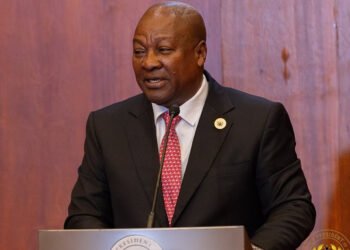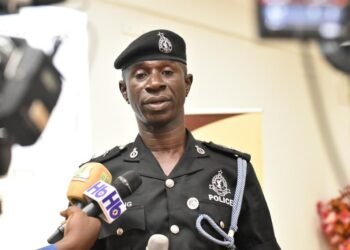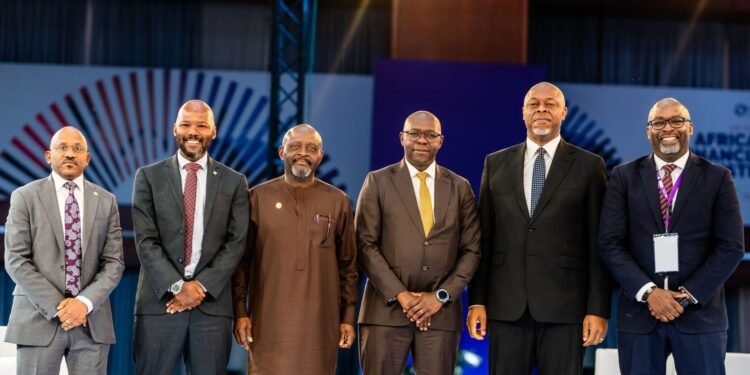President John Dramani Mahama has offered firm reassurances to Nigeria following growing panic over rumours of mass deportations of its nationals from Ghana, stemming from a widely circulated video.
Meeting with Nigeria’s Minister of State for Foreign Affairs, Bianca Odumegwu-Ojukwu, President Mahama made clear that Ghana has no intentions of undertaking any form of mass expulsion of Nigerians or any other ECOWAS nationals.
The Nigerian envoy had been sent by President Bola Ahmed Tinubu in response to what she described as “widespread apprehension” among Nigerian citizens and government officials.
According to her, a viral video had triggered alarm, prompting emergency meetings in the Nigerian National Assembly and instructions from traditional rulers advising relatives living in Ghana to return home.
The concerns included fears that shops belonging to Nigerian traders might be set ablaze and that the Ghanaian government was preparing to remove large groups of Nigerians from the country.

Historical Reflection and Clarification
President Mahama, addressing the concerns raised, rooted his response in historical context and regional solidarity. He recounted previous instances of deportations – by Ghana in the 1960s and Nigeria in the 1980s.
“I think that that is a part of our past, and it’s an unfortunate past that we want to put behind us, and I believe that none of our two countries should mass deport our citizens ever again”
President John Dramani Mahama
He stressed that Ghana’s current position aligns firmly with ECOWAS protocols, which allow for free movement between member countries, and categorically dismissed the notion of mass deportations. “We are members of the ECOWAS,” he reiterated.
The president underscored the familial bond between the two nations, stating that Ghana and Nigeria are “siblings of the same parents,” with intertwined destinies.
He made it clear that while some isolated criminal activities involving foreign nationals might arise, these are handled on a case-by-case basis through the appropriate legal channels – not through collective punishment.

President Mahama attributed the renewed fears to a resurfaced video from 2013, in which an “Igbo king” appeared to announce the establishment of a kingdom in Ghana, causing tensions around land acquisition and indigenous sovereignty.
He firmly rejected the video’s relevance to current events and emphasised that Ghana’s traditional council system does not accommodate such foreign claims. “A bit of a storm in a teacup,” he said, referring to the misinterpretation of the video.
He reiterated that Ghanaian laws govern the establishment of chieftaincies and traditional councils, adding that no individual or group from outside the country could set up a traditional authority without going through the constitutional processes.
Nigeria’s Acknowledgement
Minister Odumegwu-Ojukwu expressed gratitude for Mahama’s intervention in a situation that, left unchecked, could have escalated dangerously.

“The initial fears of widespread unrest upon our arrival in Accra proved unfounded,” she said, acknowledging that upon arriving in Ghana, the fears initially held by the Nigerian delegation were not reflected in reality.
She commended President Mahama for addressing the issue head-on and ensuring that diplomatic channels were used to maintain peace and clarity between the two nations.
President Mahama’s swift response reinforced his government’s commitment to pan-African solidarity and constitutional due process.
His remarks and posture were clearly aimed at diffusing tension while also reiterating Ghana’s legal and regional responsibilities.






















